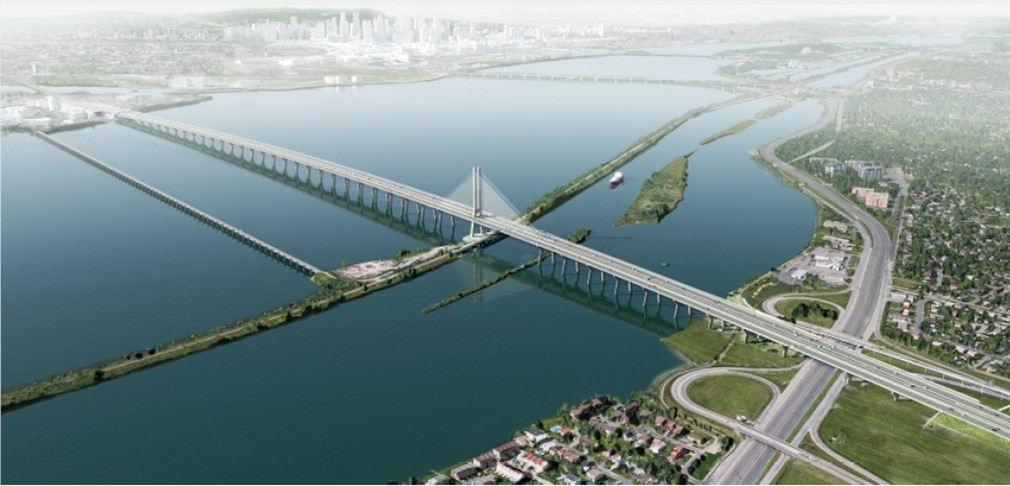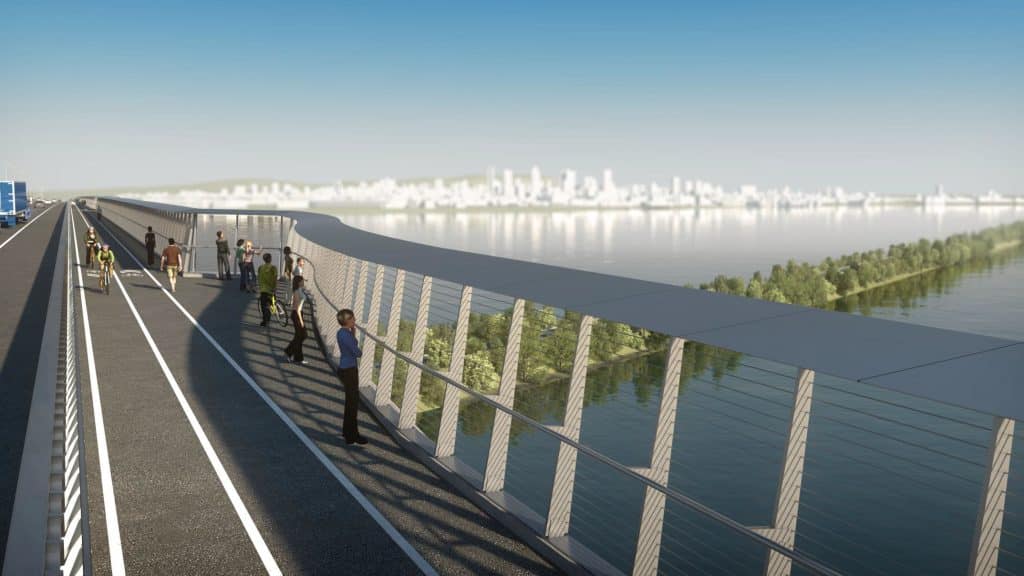On 27 July 2022, the Samuel De Champlain Bridge was opened to rail traffic for the first time. SYSTRA IBT participated in the construction of the Bridge in partnership with T.Y. Lin International and SNC Lavalin. Our IBT and SYSTRA Canada teams are currently working on the certification of the bridge’s tracks, in partnership with T.Y. Lin.
The Samuel De Champlain Bridge, backbone of the REM South
Inaugurated in the summer of 2019, the Samuel De Champlain Bridge links the cities of Brossard and Montreal, replacing a previous structure that had become obsolete. It is above all a multimodal crossing and a feat of engineering with its three decks: two decks for road traffic (with eight lanes, including three for vehicles and one reserved to buses in each direction, as well as a multifunctional path for pedestrians and cyclists), and a central deck dedicated to the REM.

The Samuel De Champlain Bridge is one of the widest bridges in the world, with a total deck width of 50 metres. Its concrete and steel design has already won several awards, including the Precast/Prestressed Concrete Institute (PCI) International Transportation Structure Award.

Towards a modal shift by the automatic REM
On the same axis as the Bridge, and to propose a credible modal shift offer, the REM South will link Brossard (via the Rive-Sud station) to Central Station, crossing the St. Lawrence River. It will be operated with automatic driverless metro trains, which should be put into service on 1 December.

Key features – Samuel De Champlain Bridge
- Total length: 3.4km
- Length of the suspended section: 238m
- Pylon height: 170m
- Width: 60m
- 3 separate decks
- 8 traffic lanes (plus 2 rail lines on the central corridor)
- 11 million public transport users
- More than 50 million vehicles expected per year
 Australia
Australia  Brazil
Brazil  Canada
Canada  China
China  Denmark
Denmark  France
France  India
India  Indonesia
Indonesia  Ireland
Ireland  Italy
Italy  Malaysia
Malaysia  New Zealand
New Zealand  Norway
Norway  Poland
Poland  Saudi Arabia
Saudi Arabia  Singapore
Singapore  South Korea
South Korea  Sweden
Sweden  Taiwan
Taiwan  Thailand
Thailand  United Kingdom
United Kingdom  United States
United States  Vietnam
Vietnam 





